

Music and Flags of the Early American Wars. Cherokee Nation Home. Native American Pride. Vicgypsy asked: Wow,what a beautiful tumblr.
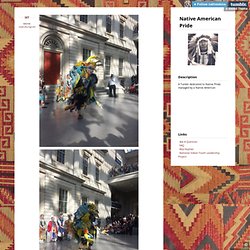
Rick Mora.
"I" IS NOT FOR INDIAN: Program of the ALA/OLOS Subcommittee for Library Services to American Indian People American Indian Library Association Atlanta, June 29, 1991 Compiled by Naomi Caldwell-Wood, President, AILA Lisa A.
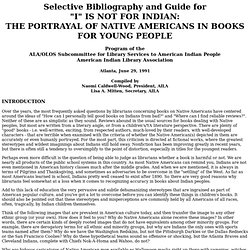
Mitten, Secretary, AILA Over the years, the most frequently asked questions by librarians concerning books on Native Americans have centered around the ideas of "How can I personally tell good books on Indians from bad? " and "Where can I find reliable reviews? ". Perhaps even more difficult is the question of being able to judge as librarians whether a book is harmful or not.
Add to this lack of education the very pervasive and subtle dehumanizing stereotypes that are ingrained as part of American popular culture, and you've got a lot to overcome before you can identify these things in children's books. Think of the following images that are prevalent in American culture today, and then transfer the image to any other ethnic group (or your own). 1. American Indian Tribes / Marion E. 2.
Fossil human traces line to modern Asians. 22 January 2013Last updated at 02:45 ET The person shared a common origin with the ancestors of modern Asians Researchers have been able to trace a line between some of the earliest modern humans to settle in China and people living in the region today.
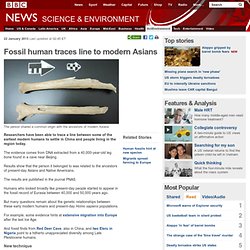
The evidence comes from DNA extracted from a 40,000-year-old leg bone found in a cave near Beijing. Results show that the person it belonged to was related to the ancestors of present-day Asians and Native Americans. The results are published in the journal PNAS. Humans who looked broadly like present-day people started to appear in the fossil record of Eurasia between 40,000 and 50,000 years ago. But many questions remain about the genetic relationships between these early modern humans and present-day Homo sapiens populations.
For example, some evidence hints at extensive migration into Europe after the last Ice Age. Charles Bukowski. Kiowa Sun Dance. The Last Kiowa Sun Dance These pages are dedicated to LINN PAUAHLTY and SCOTT TONEMAH, two Kiowa Elders who have sought to preserve the history and culture of the Kiowa People and have shared their knowledge with the younger tribal members.
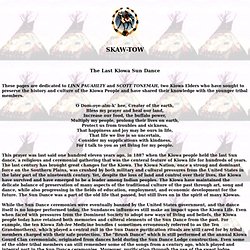
O Dom-oye-alm-k' hee, Creater of the earth,Bless my prayer and heal our land,Increase our food, the buffalo power,Multiply my people, prolong their lives on earth,Protect us from troubles and sickness,That happiness and joy may be ours in life,That life we live is so uncertain,Consider my supplications with kindness,For I talk to you as yet living for my people. This prayer was last said one hundred eleven years ago, in 1887 when the Kiowa people held the last Sun dance, a religious and ceremonial gathering that was the centeral feature of Kiowa life for hundreds of years.
The last century has brought great changes for the Kiowa. Two Spirit People Nadleeh Berdache in Native American Culture. The tribal traditions of the Native American Rain Dance. Native American Quotes, Native American Wisdom Sayings. Inspirational sayings, quotes, and words of wisdom from a Native American perspective, reflecting Native American beliefs, philosophy and spirituality.
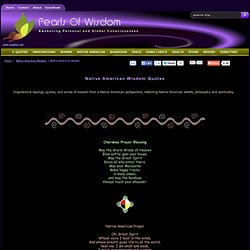
Cherokee Prayer Blessing May the Warm Winds of HeavenBlow softly upon your house.May the Great SpiritBless all who enter there.May your MocassinsMake happy tracksin many snows,and may the RainbowAlways touch your shoulder. Treat the earth well.It was not given to you by your parents,it was loaned to you by your children.We do not inherit the Earth from our Ancestors,we borrow it from our Children.
Native American Indian names - Native American Indian baby names (girls) - 2. Animals (power animals) Folklore. Legends. Tribes. Bodycard 0185.